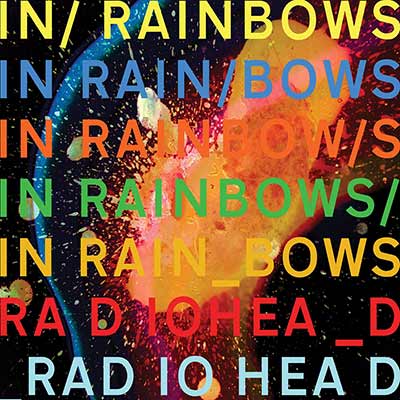I still vividly remember downloading In Rainbows, shocked that I wouldn’t have to borrow my parents’ credit card to do it (I’m really dating myself here). I knew of Radiohead’s music, but was really only familiar for the OK Computer and Pablo Honey eras. In all honesty, Radiohead was still just (in my teenage mind) the band responsible for Creep.
So imagine my surprise when the heart-attack like electronic opening of 15 Step begins, and Thom Yorke began to sing: “How come I end up where I started? How come I end up right where I went wrong? Won’t take my eyes off the ball again; You reel me out then you cut the string.”
Maybe I was odd, but I was instantly hooked — the music appealed to my then-germinating perfectionist tendencies. It also struck a chord that many artists weren’t hitting anymore: it was possible to do something totally new in both rock and electronic music. It was possible to re-invent yourself.
It’s hard for me to see this album outside of the rose-tinted glasses of nostalgia, although critics tend to agree with me about the album’s quality. I think it has many of Radiohead’s strongest, but most infrequently acknowledged tracks: the blissfully intimate Nude, the heart-crushingly beautiful House of Cards, and the otherworldly qualities of Weird Fishes/Arpeggi.
In a lot of ways, this is Radiohead at their most human: while the album is still littered with the electronic invention the band is now known for, it’s a more organic record than what came before (or since, really). Thom Yorke is at his primal best, but it’s not because he sounds as paranoid as usual. He seems unusually dialled back, this time yearning for any sort of human connection.
It’s as if the band grew tired of sounding digital and instead wanted to be human again — on both musical and personal levels. Its haunting beauty comes from its complete vulnerability; never before has Yorke or the rest of the band sounded so broken. (And Radiohead is not known for being happy.)
For people looking to get into a post-OK Computer Radiohead, it’s hard to recommend anything other than In Rainbows. Its vulnerability makes it approachable; its organic nature reveals its warmth — despite the band’s increasingly cold spirits. If I was absolutely pressured to choose a Radiohead album, this could come out on top.
